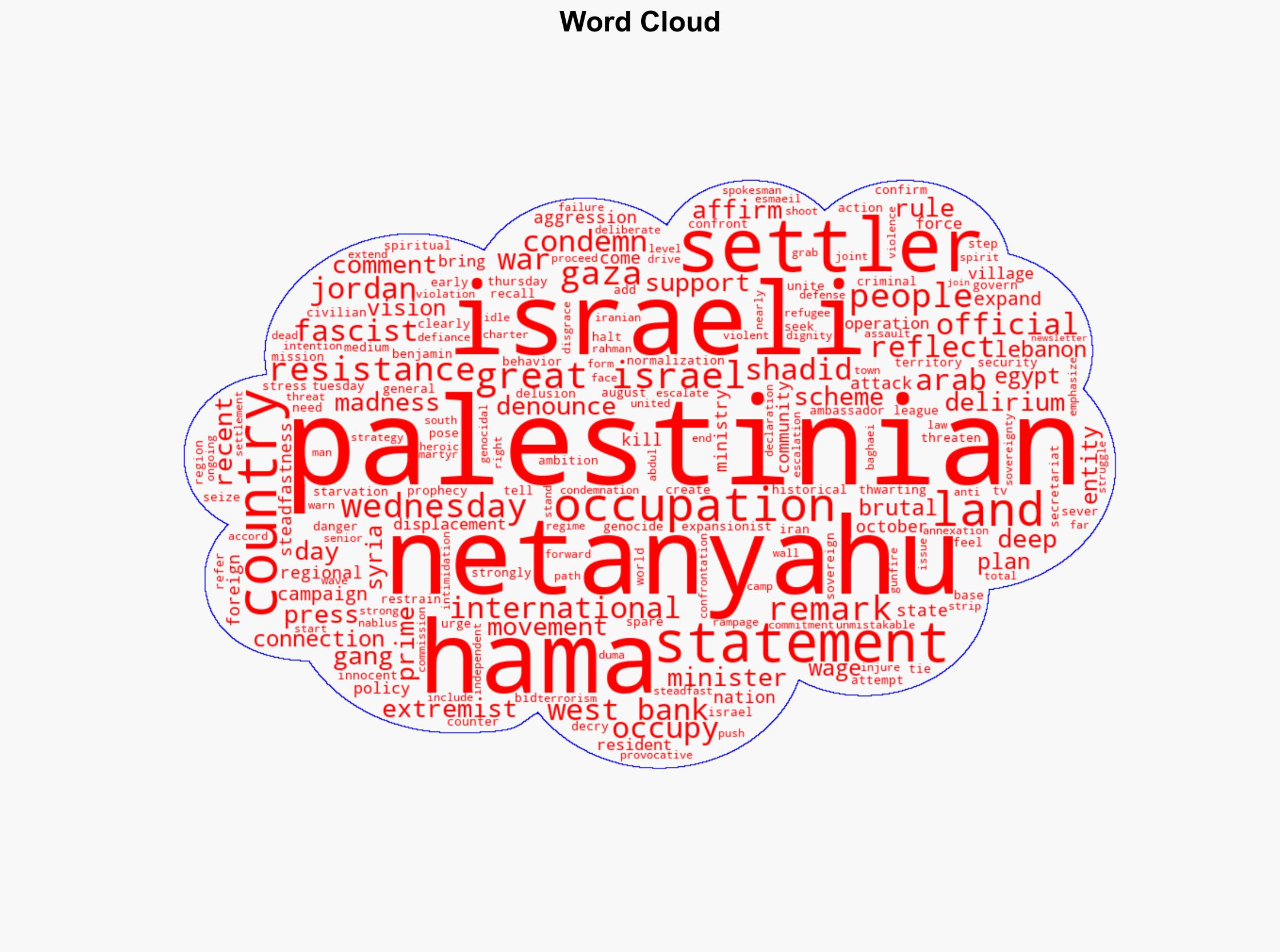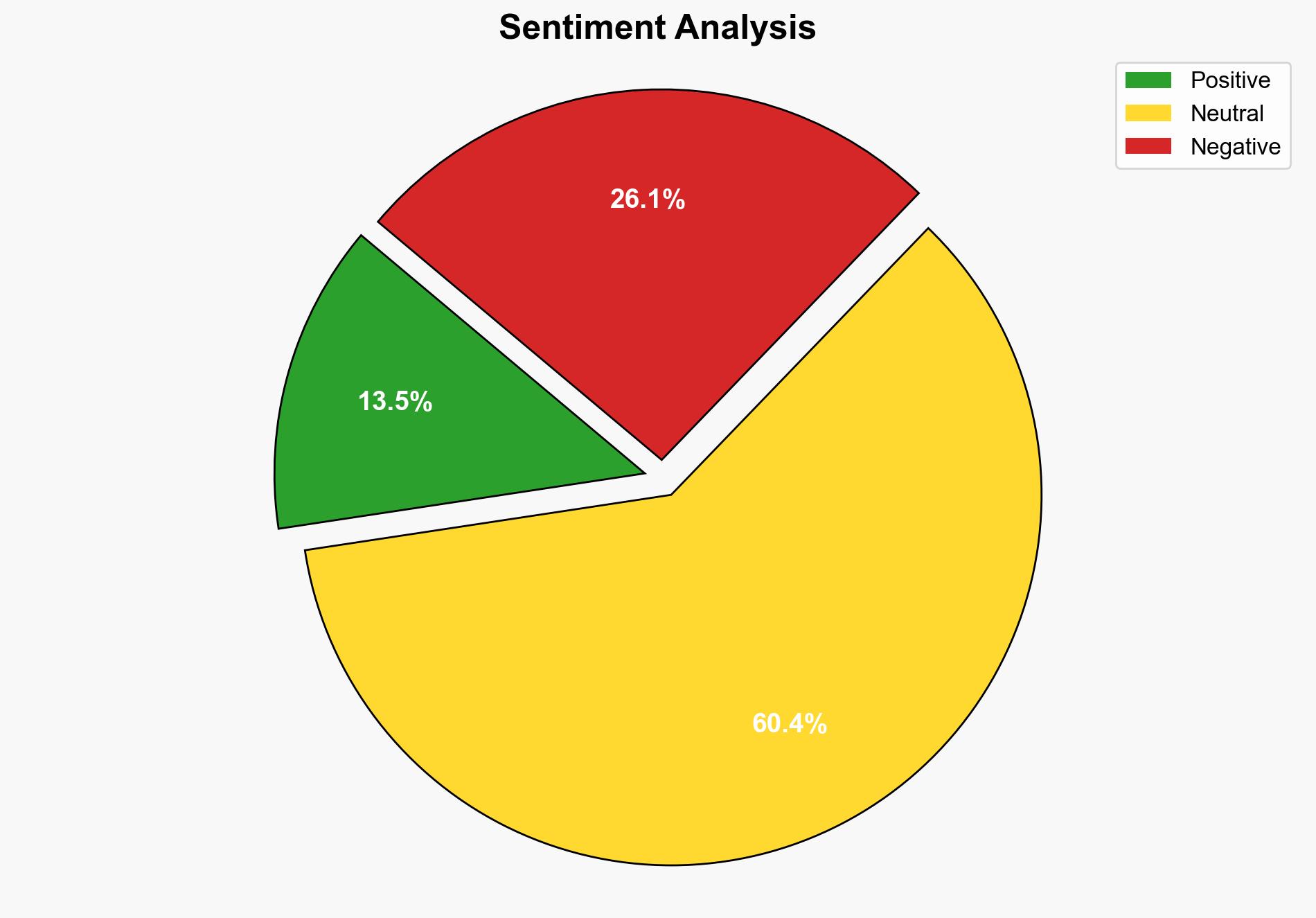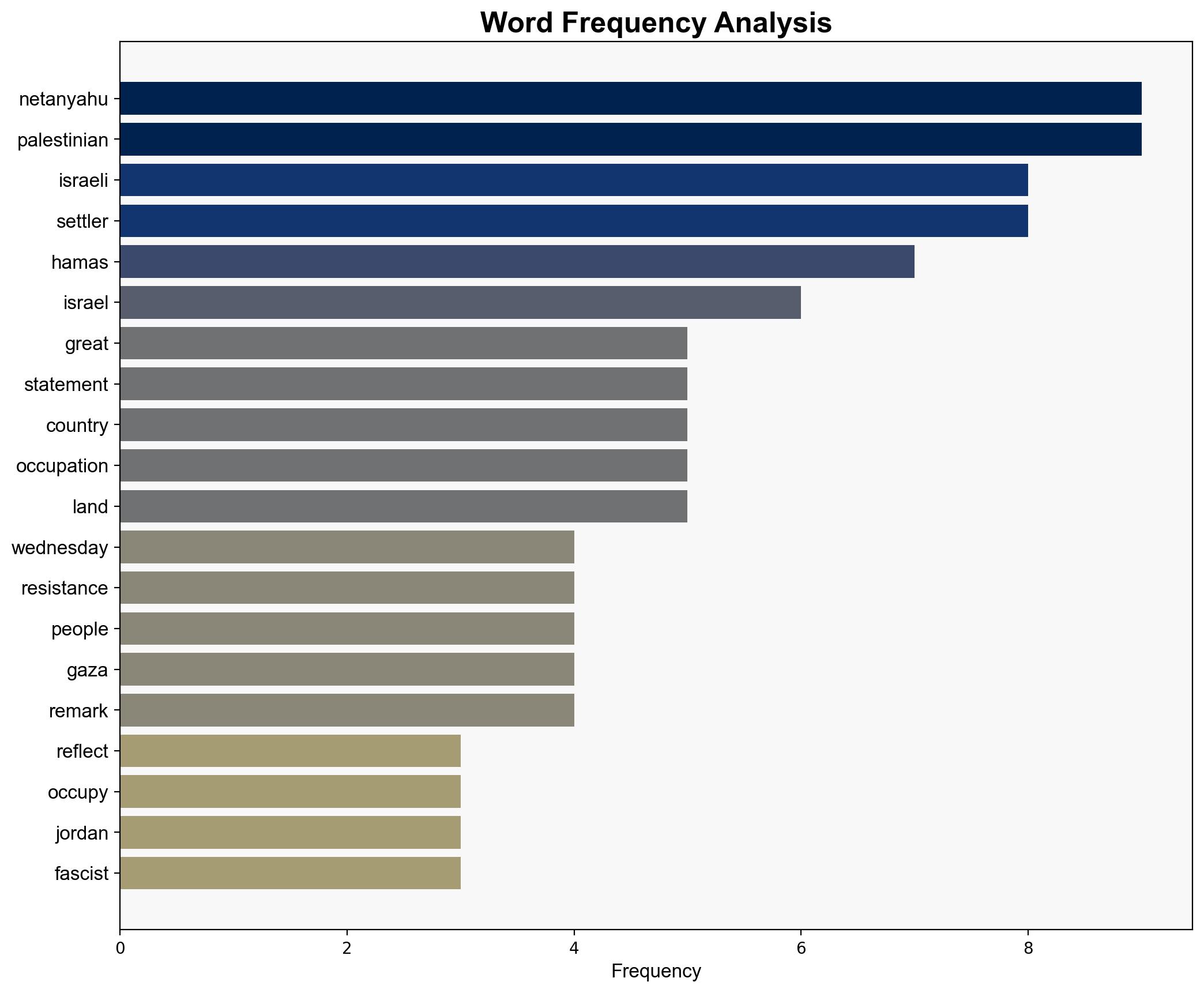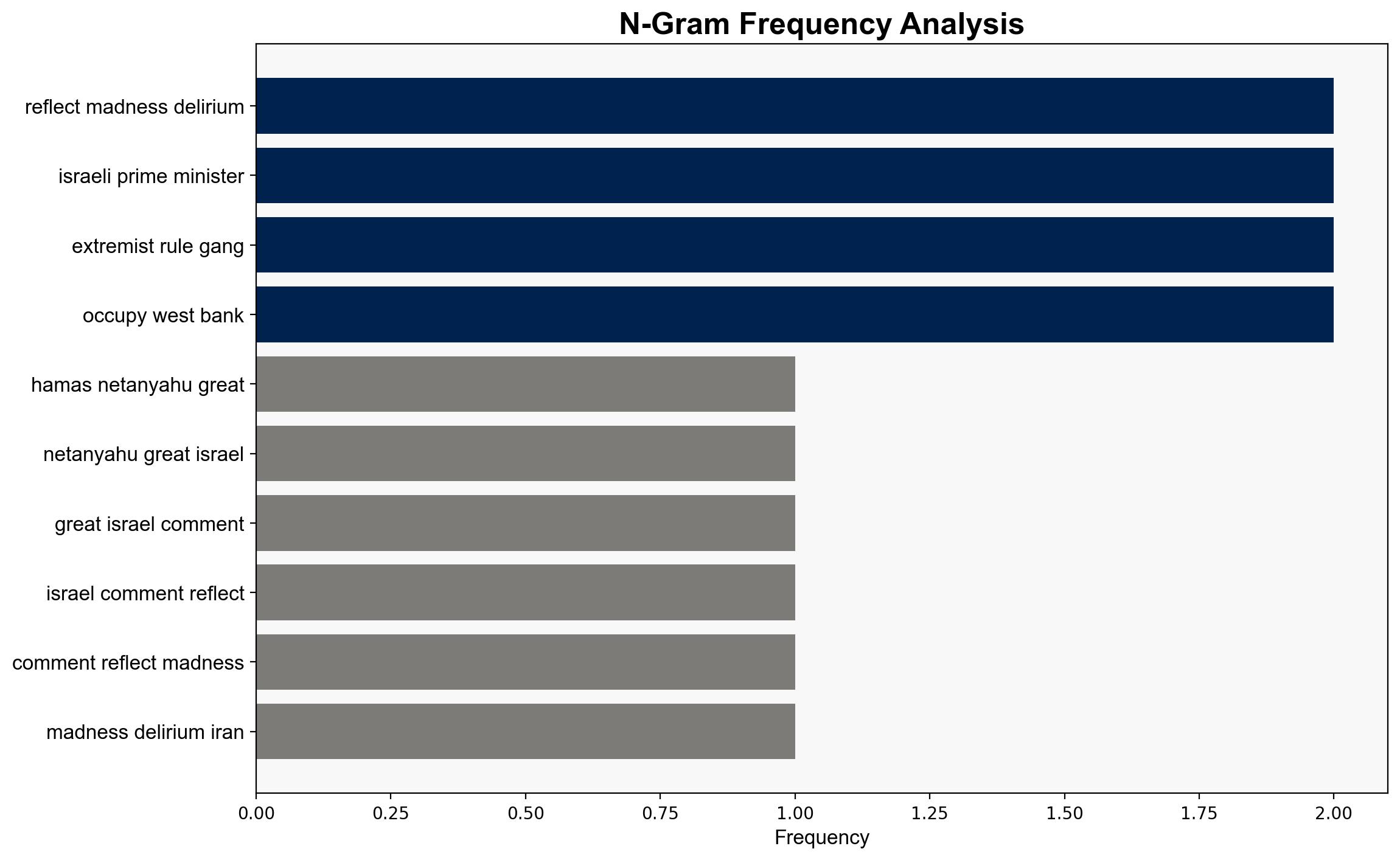Hamas Netanyahu’s ‘Greater Israel’ comments reflect his ‘madness delirium’ – Globalsecurity.org
Published on: 2025-08-15
Intelligence Report: Hamas Netanyahu’s ‘Greater Israel’ comments reflect his ‘madness delirium’ – Globalsecurity.org
1. BLUF (Bottom Line Up Front)
The most supported hypothesis is that Netanyahu’s comments are part of a strategic narrative to solidify domestic political support and assert regional dominance. Confidence level: Moderate. Recommended action: Increase diplomatic engagement with regional allies to counter potential destabilization and prepare for possible escalation in tensions.
2. Competing Hypotheses
1. **Strategic Posturing Hypothesis**: Netanyahu’s comments are intended to strengthen his political position domestically by appealing to nationalist sentiments and to project strength in the face of regional adversaries. This aligns with historical patterns of Israeli rhetoric aimed at consolidating internal support and deterring external threats.
2. **Expansionist Intent Hypothesis**: The comments reflect a genuine intent to pursue territorial expansion under the guise of a historical and spiritual mission, signaling a shift towards more aggressive policies that could lead to increased regional conflict.
Applying ACH 2.0, the Strategic Posturing Hypothesis is better supported due to the timing of the comments amidst ongoing regional tensions and domestic political challenges faced by Netanyahu. The Expansionist Intent Hypothesis lacks concrete evidence of immediate policy shifts or military preparations.
3. Key Assumptions and Red Flags
– **Assumptions**: It is assumed that Netanyahu’s rhetoric is primarily for domestic consumption and not indicative of immediate policy changes. There’s an assumption that regional actors will respond predictably to Israeli statements.
– **Red Flags**: The absence of direct military actions or policy changes following the comments could indicate a bluff, but also a potential blind spot if preparations are covert. The reliance on historical rhetoric may obscure genuine policy shifts.
– **Cognitive Bias**: Confirmation bias may lead to overemphasizing historical patterns without considering new strategic contexts.
4. Implications and Strategic Risks
– **Geopolitical Risks**: Increased tensions with neighboring countries could lead to diplomatic isolation or military confrontations.
– **Economic Risks**: Regional instability may impact economic ties and investments, particularly if sanctions or boycotts are pursued.
– **Psychological Risks**: Heightened nationalist rhetoric could exacerbate internal divisions within Israel and among Palestinian communities.
– **Cascading Threats**: Potential for escalation into broader regional conflict involving multiple state and non-state actors.
5. Recommendations and Outlook
- Engage in proactive diplomacy with regional allies to mitigate potential conflicts and build a coalition to counterbalance Israeli expansionist rhetoric.
- Monitor Israeli domestic politics for shifts that may indicate policy changes, and prepare contingency plans for various escalation scenarios.
- Scenario Projections:
- **Best Case**: Diplomatic efforts lead to de-escalation and renewed peace talks.
- **Worst Case**: Rhetoric leads to military confrontations and regional destabilization.
- **Most Likely**: Continued rhetorical posturing without immediate policy changes, but with increased regional tensions.
6. Key Individuals and Entities
– Benjamin Netanyahu
– Esmaeil Baghaei
– Abdul Rahman Shadid
7. Thematic Tags
national security threats, geopolitical strategy, regional stability, diplomatic engagement





